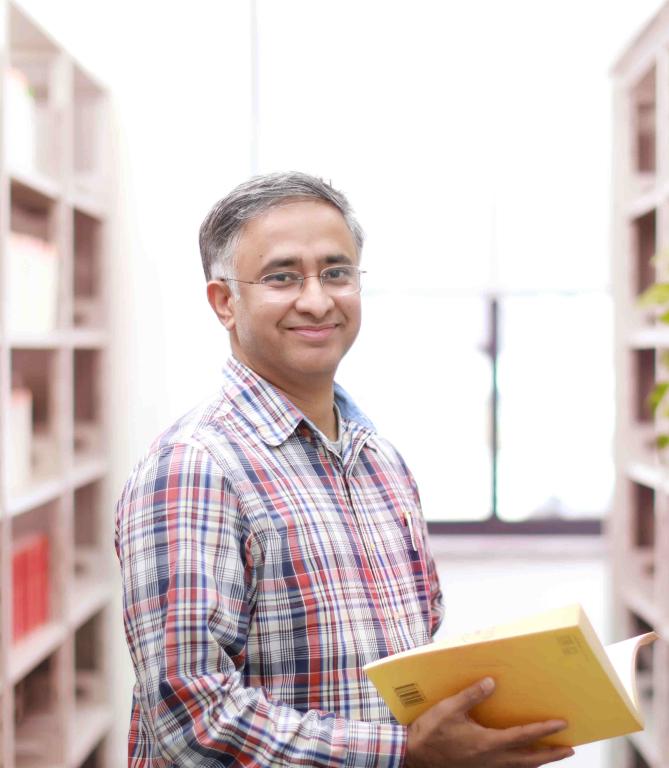
Samir KC
Email: kcsamir@gmail.com
Narrative Biography
Samir KCis a professor and founding member of the Asian Demographic Research Institute (ADRI) since 2015. KC leads ADRI's research pillar on Human Capital and Development. He received his master’s degree in statistics is from Tribhuvan University, Nepal (1997). Subsequently, he taught university statistics in Kathmandu and worked as a biostatistician at the Nepal Health Research Council. He received his PhD (specialized in demography and health) from the department of spatial science at the University of Groningen, the Netherlands (2009). He got China's National High Talent Foreigner Expert Award in 2017 and Shanghai's 1000 Foreign Expert Award in 2015. He leads the Multi-dimensional Demographic Modeling research group in the Population and Just Societies Program at International Institute for Applied Systems Analysis (IIASA), where KC works since 2005.
Education
2001-2009 Ph.D. in Spatial Sciences, University of Groningen, The Netherlands (Scholarship Award from Netherlands Foundation for the Advancement of Tropical Research, The Netherlands.)
2001-2002 Attained full course of Master in Demography (required for Ph.D.), Population Research Centre, University of Groningen, The Netherlands
1997 Master in Statistics, Department of Statistics, Tribhuvan University, Kathmandu, Nepal
1994 B.Sc. Degree in Statistics, Mathematics, and Physics, Tribhuvan University, Kathmandu, Nepal
Main Professional Employment and Experience
Jan 2021 - Research Group Leader, Multidimensional Demographic Modelling, IIASA, Austria
Feb 2020 - Distinguished Visiting Professor, Institute for Liberal Arts and Sciences (ILAS), Kyoto University, Japan
July 2019 - Deputy Director, Asian Demographic Research Institute, Shanghai University, Shanghai, China
June 2015 - Professor and Leader, Human Capital and Development Pillar at Asian Demographic Research Institute, Shanghai University, Shanghai, China
Jan 2018 - Founding member, Digital Data System for Development, Kathmandu, Nepal
Sep 2012 - Leader of Project "Modeling Human Capital Formation", Wittgenstein Centre for Demography and Global Human Capital (IIASA, VID/ÖAW, WU), International Institute for Applied Systems Analysis (IIASA), World Population Program, Laxenburg, Austria
May 2005 - Research Scholar, IIASA, World Population Program, Laxenburg, Austria
May 2014 – Dec 2017 Co-Principal Investigator, internal IIASA project "Accounting for socioeconomic heterogeneity in IIASA models."
2002-2003 Program Manager, The Economic Evaluation of Practical Approach to Lung Health (Ph.D. related) in Nepal, Nawalparasi, Nepal
2001 Biostatistician, Nepal Health Research Council, Ministry of Health and Population, Kathmandu, Nepal
2000-2003 Lecturer (Adjunct) of Statistics and Computer Applications at the Department of Community Medicine, Institute of Medicine, Kathmandu, Nepal
1997-2003 Lecturer (Adjunct) in Statistics at various campuses of Tribhuvan University and Lecturer at Pokhara University, Kathmandu, Nepal
Selected Publications
Balachandran A, James KS, van Wissen L, KC S, and Janssen F (2021) “Can Changes in Education Alter Future Population Ageing in Asia and Europe?”Journal of Biosocial Science. https://doi.org/10.1017/S0021932021000134
KC S (2020) Internal Migration in Nepal (Chapter 13). Internal Migration in the Countries of Asia (Eds. Martin Bell, Aude Bernard, Elin Charles-Edwards, and Yu Zhu). Springer. DOI: 10.1007/978-3-030-44010-7
Chao F, Guilmoto CZ, KC S, and Ombao H (2020). “Probabilistic Projection of the Sex Ratio at Birth and Missing Female Births by State and Union Territory in India.”PLoS ONE. 10.1371/journal.pone.0236673
KC S, Mishra R, Mishra R, & Shukla A (2020). Community COVID-19 Vulnerability Index in India. IIASA Working Paper. Laxenburg, Austria: WP-20-007. http://pure.iiasa.ac.at/16481
O'Neill B, Jiang L, KC S, Fuchs R, Pachauri S, Laidlaw E, Zhang T, Zhou W, & Ren X (2020). The effect of education on determinants of climate change risks.Nature Sustainability. https://doi.org/10.1038/s41893-020-0512-y
Lucas PL, Hilderink HBM, Janssen PHM, KC S, van Vuuren DP, & Niessen L (2019). Future impacts of environmental factors on achieving the SDG target on child mortality—A synergistic assessment.Global Environmental Change. https://doi.org/10.1016/j.gloenvcha.2019.05.009
KC S, Wurzer M, Speringer M, & Lutz W (2018). Future Population and Human Capital in Heterogeneous India.Proceedings of the National Academy of Sciences. https://doi.org/10.1073/pnas.1722359115


